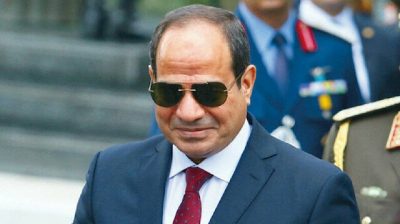Libya: Haftar’s Air Force Commander Drops Bombshell Confession: Jets from Egypt’s President Sisi, “French Specialists” Provide Support

GR Editor’s Note: This report by Yeni Şafak, a conservative Turkish daily newspaper has not been corroborated by other news sources.
New developments in war-torn Libya have come to light since the capture of Amar Youssef Al-Jakam, Assistant Air Force Commander of Haftar’s forces, who has spilled the beans of the extent of international actors’ involvement in the country’s civil war.
Al-Jakam, who was captured after his plane was downed during a mission for east Libyan commander Khalifa Haftar, stated that French soldiers provided technological support, while Egyptian putschist leader Abdel Fattah el-Sisi deployed F-16 warplanes to the African nation.
“A team made up of French specialists is conducting reconnaissance, tapping and logistics activities,” he said.
Noting that Sisi deployed warplanes such as the F-16 fighter jet and the Rafale found in the Egyptian military’s inventory, he confessed that these planes took off from the Al-Barani air base in Egypt and struck targets in Misrata and Tripoli.
Russian mercenaries belonging to the Wagner paramilitary group support Haftar’s forces in Tarhuna, southeast of Tripoli, providing aerial backup and using jamming systems, according to Al-Jakam.
“Emirati officers operate all drones from Al-Kharouba base; in the area of al-Majra, located 25 kilometers east of Benghazi, they have their own operation command,” he said.
Turkey backs Libya’s internationally recognized government and has said it could deploy troops there if it receives such a request. Libya’s Tripoli-based government has been fighting off a months-long offensive by Khalifa Haftar’s forces based in the east of the country. Haftar’s Libyan National Army has received support from Russia, Egypt, Jordan and the United Arab Emirates.
In April, Haftar’s forces launched a military campaign to capture Tripoli from the GNA but have so far failed to progress beyond the city’s outskirts.
According to UN data, over 1,000 people have been killed since the start of the operation and more than 5,000 injured.
Since the ouster of late leader Muammar Gaddafi in 2011, two seats of power have emerged in Libya: one in eastern Libya supported mainly by Egypt and the United Arab Emirates and another in Tripoli, which enjoys UN and international recognition. [as well as support by Turkey]
*
Note to readers: please click the share buttons above or below. Forward this article to your email lists. Crosspost on your blog site, internet forums. etc.
Featured image is from the author

